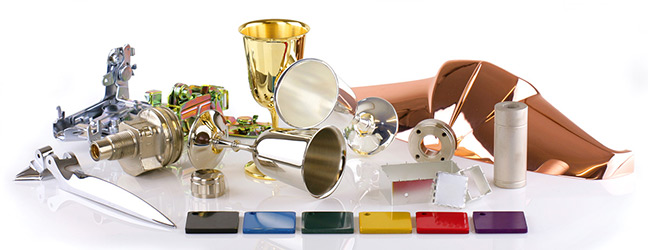What Is Zinc Passivation Used For?
When it comes to the world of corrosion protection, zinc passivation is one of the more crucial processes that adds an extra layer of defence to zinc-coated materials. While galvanisation provides an initial level of corrosion resistance, zinc passivation takes it a step further. In this blog, we’re exploring how the process works and how it can be applied across different industries.
What Is Zinc Passivation?
Zinc passivation is the process of applying a protective layer to the surface of a metal, typically zinc or zinc alloys, to improve its corrosion resistance. This is achieved through the use of chemical solutions and chromate conversion coatings. These chemically react with the surface of the metal, forming a layer of zinc chromate and acting as a barrier against corrosion.
Compared to zinc plating, which involves the application of a layer of zinc to metal surfaces through an electroplating process, zinc passivation can offer a superior level of corrosion protection for a wider range of materials. This is because the coating formed through chromate conversion offers additional protection against hydrogen embrittlement and white rust.
Process Of Performing Zinc Passivation
Zinc passivation follows a similar process to zinc electroplating, though there are a few key differences. To begin with, the surfaces of the materials must be cleaned thoroughly. Any dirt, dust, or imperfections will interfere with the passivation process and produce an inferior result. Fortunately, cleaning is a simple process of wiping the metals down and submerging them in a cleaning agent.
The next step is an acid dip. The metals are dipped into an acid bath for an exact duration and at an exact temperature. This is a highly technical process and, if performed correctly, will begin the chemical process of removing iron from the surface of the metal. This creates a zinc oxide layer, enhancing the corrosion-protection qualities.
The final step of zinc passivation is simply to rinse the metal and dip it in a neutralisation bath. After following this process, the original metal material should be left with a reinforced outer layer, making it perfect for multiple uses.
Advantages Of Zinc Passivation Over Zinc Plating
Zinc passivation has several advantages over other metal coatings, such as zinc plating, when it comes to corrosion protection. One of the main benefits is the formation of a compact layer of zinc oxide and hydroxide. This protective layer effectively prevents the formation of white rust in damp conditions, making it an ideal choice for outdoor applications.
Another advantage is that zinc passivation can serve as something of a ‘sacrificial’ coating. In the presence of oxygen and water, the zinc coating will react to form a protective layer of zinc carbonate. This process helps to protect the underlying metal surface from corrosion, as the zinc coating sacrificially corrodes instead of the metal underneath.
Industries That Use Zinc Passivation
With a range of benefits to using zinc passivation, it’s unsurprising that many industries make use of the process. To name a few:
- Industrial and infrastructure applications – Galvanised steel structures, such as bridges, highways, utility poles, and fences undergo zinc passivation to ensure their long-term performance in harsh outdoor environments. By withstanding exposure to rain, humidity, and other corrosive agents, these structures maintain their structural integrity, reducing maintenance costs and enhancing safety.
- Automotive and transportation – Automobile manufacturers employ galvanised steel extensively for components like body panels, chassis, and suspension systems. Zinc passivation ensures that these parts resist corrosion caused by road salts, moisture, and other environmental factors, ultimately improving the vehicle’s durability and longevity.
- Construction and architecture – In the construction sector, zinc coating plays a vital role in protecting steel used in roofing, cladding, and interior applications. Buildings located in coastal areas or regions with high humidity levels are particularly susceptible to corrosion. By employing zinc passivation on galvanized steel, construction materials can withstand these corrosive environments, maintaining their aesthetics and structural strength over time.
- Electrical and electronic equipment – Zinc-coated components, such as electrical enclosures, switchgear, and cable trays, undergo passivation to ensure optimal performance and longevity. By safeguarding these vital components against corrosion, zinc passivation minimises the risk of electrical failures, extends equipment lifespan, and enhances overall reliability.
Zinc Passivation Services From Dorsetware
At Dorsetware, we provide specialist services in all forms of electroplating and metal coating, including zinc passivation. With years of industry experience across a wide range of sectors, we can offer expert advice on top of all your corrosion protection needs.
Would you like to hear more about zinc passivation? Get in touch today! Reach us with our online contact form or give us a call us on 01202 677939. You can also browse our website to see the full range of services we offer.

